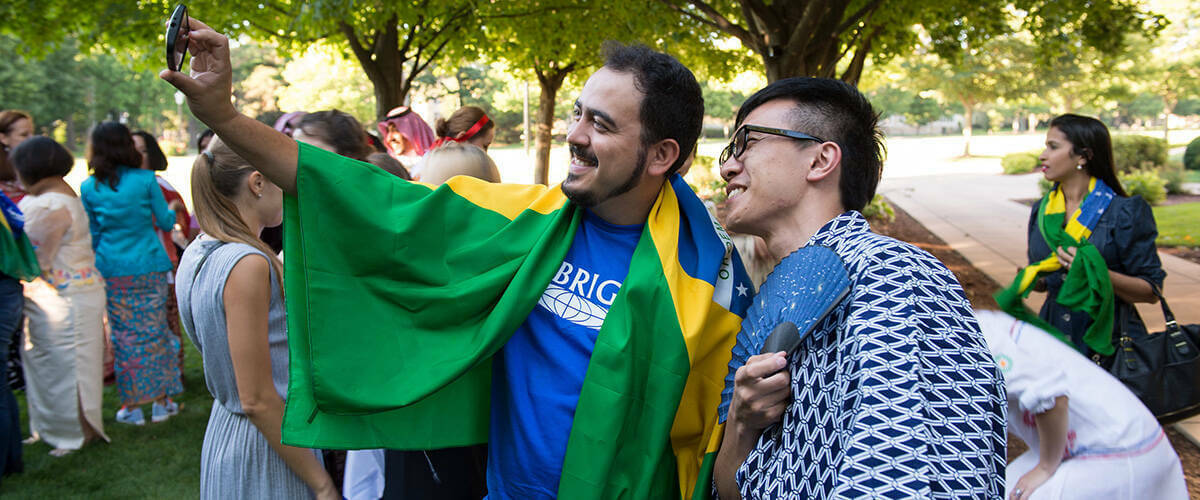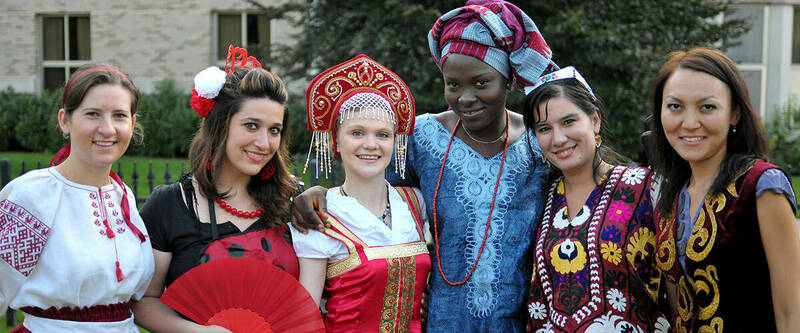Fulbright Visiting Scholar Program
Notre Dame Global strongly encourages Notre Dame departments to host Fulbright Visiting Scholars. Hosting a scholar through the Fulbright Visiting Scholar Program requires no actual financial outlay from Notre Dame beyond access to facilities and programs. All University constituents, whether they be administrators, faculty or students, can benefit from the presence of Fulbright Visiting Scholars at Notre Dame. These individuals enrich ND’s intellectual and research endeavors, international connections, and global perspectives.
There are several opportunities for international scholars to visit Notre Dame through the prestigious Fulbright program. The Fulbright Visiting Scholar Program provides grants to over 800 foreign scholars from over 155 countries to conduct post-doctoral research at U.S. institutions from a semester to a full academic year. The Fulbright Visiting Scholar Program provides American colleges, universities and research institutions a valuable resource to support the internationalization of their campuses
Deadlines may vary by country and can be determined by contacting the specific country's Fulbright Commission or the public affairs section of the U.S. Embassy.
To participate in a Fulbright Visiting Scholar Program, the following eligibility criteria must be met:
- Non-US Citizens only, U.S. citizens and permanent residents are ineligible.
- A doctoral degree or equivalent professional training or experience at the time of application.
- Sufficient proficiency in the English language to carry out the project required.
- Country specific criteria may apply and can be checked here.
The Fulbright Scholar-in-Residence (SIR) Program enables U.S. colleges and universities to specifically address internationalization goals for their campus. The visiting scholars work across departments in a variety of ways that could include developing new or enhancing existing international programs, adding an international dimension to coursework and providing an opportunity for U.S. students to learn about a particular country or region of the world.
- The program is open to all accredited U.S. institutions of higher education. The institution must be in compliance with Title VI of the Civil Rights Act of 1964 requiring nondiscrimination in federally assisted programs.
- Foreign scholars are eligible to serve as Scholars-in-Residence. U.S. citizens and permanent residents are ineligible.
- Scholar teaching responsibilities are limited to a maximum of two courses per semester.
- Proposals shall not authorize engagement in pastoral, missionary, or other professional religious activities.
- Proposals shall not authorize engagement in activities for which a license to practice medicine or nursing is required.
- U.S. institutions may not host Fulbright Scholar-In-Residence participants in consecutive academic years. An institution hosting an S-I-R in a given academic year must wait one academic before hosting a subsequent S-I-R. Preference will be given to applicants who have not previously received a Scholar-in-Residence award.
The Council for International Exchange of Scholars (CIES) provides travel awards through the Outreach Lecturing Fund (OLF) which allows Fulbright Visiting Scholars who are currently in the U.S. to accept guest lecturing invitations at other colleges and universities. A representative of the institution requesting an OLF visit from a Fulbright Visiting Scholar must serve as the applicant for the OLF award. ND faculty can search by downloading the list of current eligible Fulbright Visiting Scholars in the U.S. Scholar contact information may be obtained through either the listed faculty associate or the host institution department.
Applying to be a Fulbright Visiting Scholar at the University of Notre Dame
If you are a non-U.S. citizen and are interested in applying to the Fulbright Visiting Scholar Program for research at the University of Notre Dame, please visit the Bureau of Educational and Cultural Affairs website to learn more about eligibility and the application.
If you want to determine if your country participates in the program and the particular deadline for your country, please contact your country’s Fulbright Commission or the public affairs section of the U.S. Embassy.

